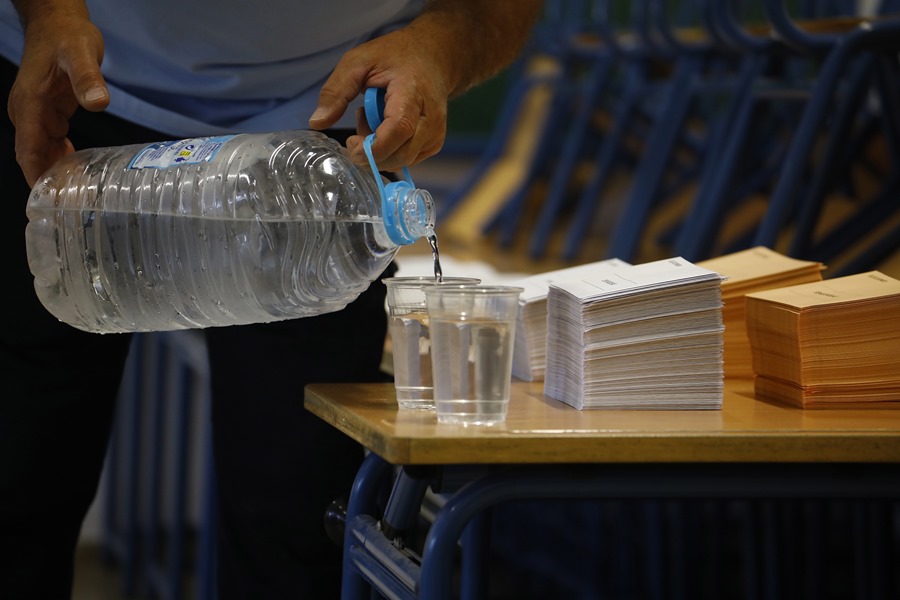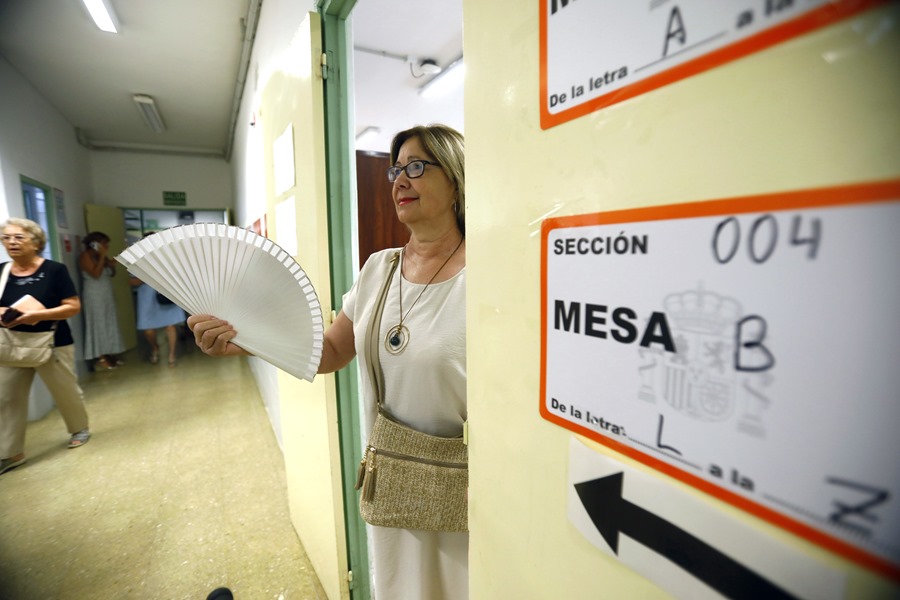Madrid (EFE)
The tables opened at 09:00 a.m. with stable and dry weather in a large part of the country, where the thermal rise will be more noticeable in Aragón, La Rioja, Navarra and the Basque Country, according to forecasts from the State Meteorological Agency (Aemet).
Although the sun will be the general trend, in the afternoon there will be instability in Galicia and the western Cantabrian Sea. In addition, there may be storms, mostly dry in areas of Murcia, Almería, Granada and Jaén.
But the meteorological protagonist of the day will be the heat, especially in the central hours of the day and in areas of the south, center and northeast of the peninsula, where the Aemet has activated various warnings for high temperatures, especially in the valleys of the Guadalquivir and the Ebro.

The thermometer may reach 40 degrees in areas of the provinces of Córdoba, Granada and Jaén, it will reach 39 in areas of Zaragoza and on the banks of the Ebro de Navarra.
In those places, between 1:00 p.m. and 8:00 p.m., Aemet provides an orange level warning, which means that there is a risk of unusual meteorological phenomena and with a certain degree of danger for usual activities.
Andalusia will be one of the communities where the highest temperatures are expected and, beyond the 40 of Córdoba and Granada, Jaén can reach 39 degrees and Seville 38.
To cope with the heat, in Córdoba, where this noon the temperature already exceeded 30 degrees, the polling stations are adapted with portable refrigeration and water supply, according to the device prepared by the City Council.
Thermometers are also expected to climb to values close to 40 in many cities. From the 38 of Ciudad Real; 37 in Toledo; 36 in Lleida; 35 in Madrid and Badajoz or 33 in Palma de Mallorca.
However, the environment will be cooler in the north, where the maximum can be 22 from Santander; 23 in San Sebastián or 24 in A Coruña. In the Canary Islands, the thermometers are also expected to be around 25 degrees.

In any case, the measures so that the voting spaces suffer as little as possible from the heat, wherever it is high, have been extended to various autonomous communities.
Thus, in Aragon and specifically in Zaragoza, the Government Delegation will guarantee the members of the tables a liter and a half of cold water in the morning and the same amount in the afternoon, some 8,000 liters in total.
In Catalonia, more than 9,000 liters of water and as many fans accompany the ballot boxes in the polling stations. The high temperatures have led some councils, such as Barcelona or Sabadell, to change the location of some polling stations because they were in spaces that did not guarantee a minimum thermal comfort.
In Madrid, the Government Delegation has acquired 2,700 fans, water dispensers and extension cords to combat the heat in polling stations, which have been distributed by the Madrid City Council.
In Murcia, it has been decided to look for alternative polling stations and the Lorca city council has collected bottles of water and fans to guarantee the best possible conditions in the 46 polling stations in the municipality.
In Castilla y León, the Tordesillas City Council (Valladolid) has invested 3,000 euros in air-conditioning schools and supplying them with water.
Air conditioning devices in Castilla-La Mancha, specifically in schools in Toledo, while Albacete has installed 150 fans in the 30 schools that do not have the means to cope with the high temperatures and will distribute 3,000 bottles of water, while Cuenca has distributed 60 devices, one for each table.






